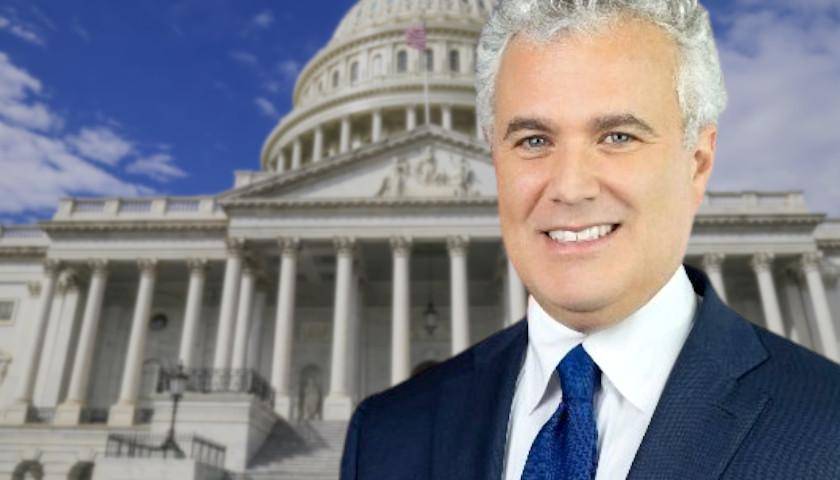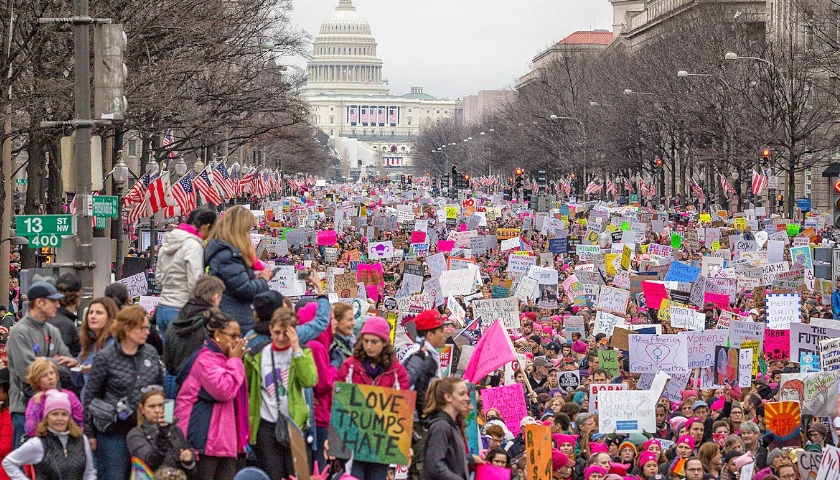by Eric Lendrum
Former President Barack Obama is reportedly becoming increasingly nervous over the likelihood of former President Donald Trump being re-elected in November, and has expressed his concerns to Joe Biden’s chief of staff on numerous occasions.
As reported by Fox News, Obama has made several calls to White House Chief of Staff Jeff Zients and other top aides on the Biden campaign, attempting to provide them with advice ahead of the election in just over 7 months. A senior aide for Obama said that the 44th president has “always” been concerned about the possibility of President Trump returning to power.
Obama and Zients (pictured above) now “speak regularly on a range of topics from 2024 to health care,” said an anonymous source, who further claimed that, in addition to Obama, former President Bill Clinton has also spoken with Biden to provide further advice.
Trump’s predecessor has also made several visits to the White House for in-person meetings with Biden, during which he allegedly expressed his belief that Biden could lose. His advice to Biden reportedly included the suggestion to make the election more of a referendum on Trump rather than running on Biden’s own record. Sources claim that Obama also told Biden that defeating Trump would be much harder in 2024 compared to 2020, when Biden was the challenger and Trump was the incumbent.
Polls have increasingly given President Trump the advantage in the 2024 general election, a stunning turnaround from polls ahead of the 2020 election. Over the course of Trump’s entire first term, there were only 9 polls showing him with a slight lead over Biden, and another 9 polls depicting a tie in a then-hypothetical 2020 matchup. By contrast, the majority of polls conducted for the 2024 race have given Trump a lead over Biden, with the former president currently leading the popular vote by just over 1% in most aggregates.
A number of key circumstances could account for the shift in the political fortunes of both men. In 2020, Biden had the advantage as a challenger who did not yet have his own record that could be scrutinized. Biden’s campaign appearances were significantly limited, under the guise of lockdowns in the midst of the Chinese Coronavirus pandemic, thus reducing the chances of Americans witnessing an episode that would confirm Biden’s advanced cognitive decline. Trump, by contrast, was facing criticism even from conservative Americans over his handling of the pandemic, as well as the nationwide race riots in the summer of 2020.
In the lead-up to 2024, President Trump has seen his approval ratings skyrocket in response to multiple ongoing disasters on Biden’s watch, from an open southern border and a deteriorating international scene, to a sluggish economy and the Democratic Party facing increased scrutiny over its extremely left-wing views on race, gender, and sexuality. Multiple indictments and other legal attacks against Trump by Biden-aligned district attorneys and special prosecutors have also generated more sympathy for the former president from the American public.
Another prominent concern for the Biden campaign is the role of several major third-party candidates who have announced their bids for the presidency this year. Chief among them is Robert F. Kennedy Jr., son of Senator Robert F. Kennedy and nephew of President John F. Kennedy, who is running as an independent after an initial challenge to Biden in the Democratic primaries. Kennedy, currently polling at the highest levels for a third-party candidate since Ross Perot in 1992, has drawn the White House’s attention so much that the Biden campaign is now actively planning to target his candidacy in addition to Trump’s. Kennedy has gained ballot access to several crucial swing states, including Nevada, Arizona, Michigan, Georgia, and New Hampshire.
Other notable third party candidates include professor and left-wing activist Cornel West, also running as an independent after initially running for the Green Party nomination, as well as Jill Stein, the two-time nominee for the Green Party in 2012 and 2016, who is running for her party’s nomination for a third time. Although the Democratic Party launched multiple lawsuits to have the Greens kicked off the ballots in several swing states in 2020, the Greens have since regained ballot access in two of the states from which they were banned, Arizona and Wisconsin, as well as the additional swing states of North Carolina, Florida, and Michigan.
– – –
Eric Lendrum reports for American Greatness.



